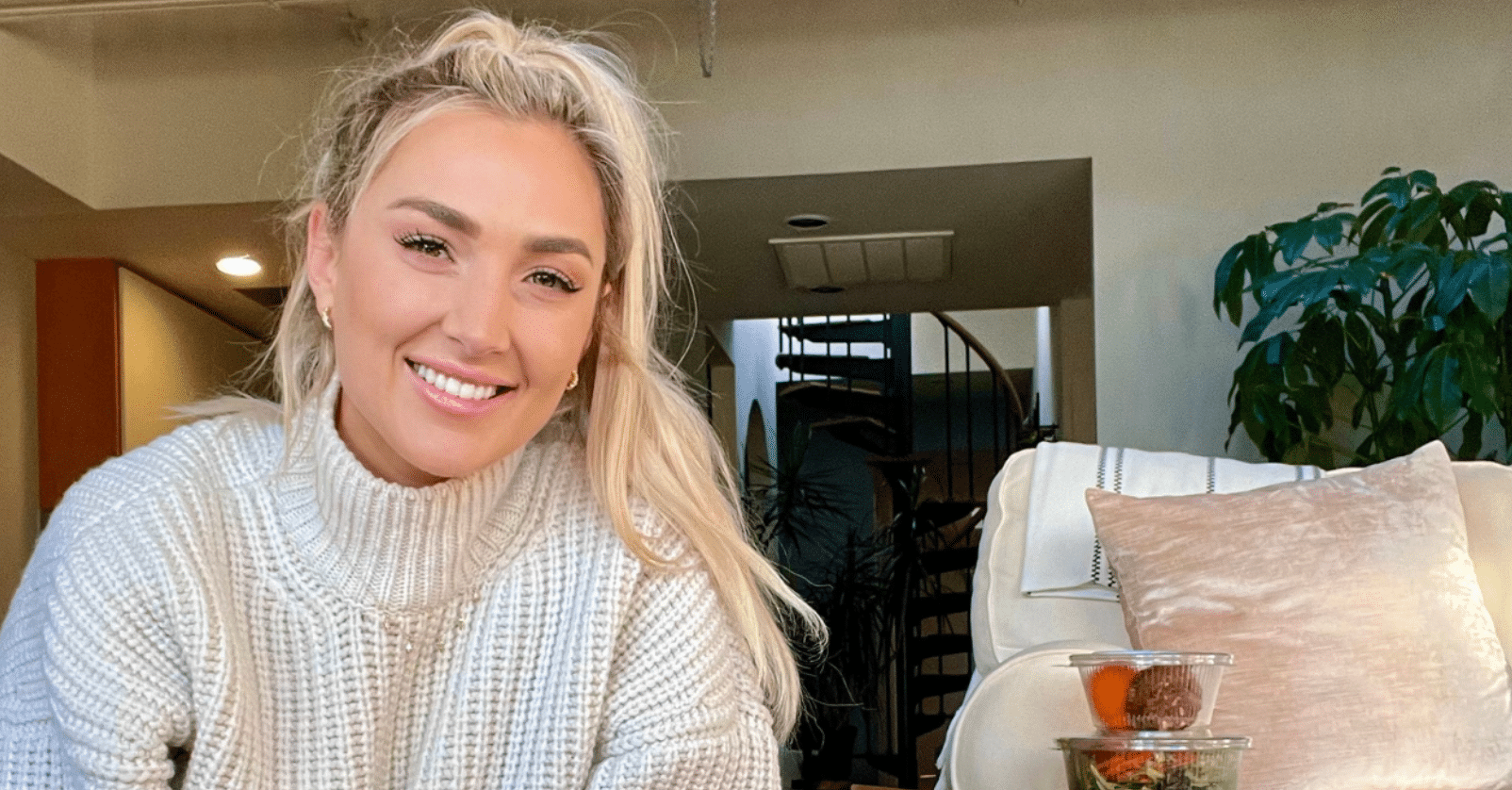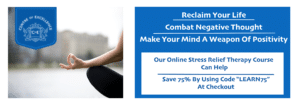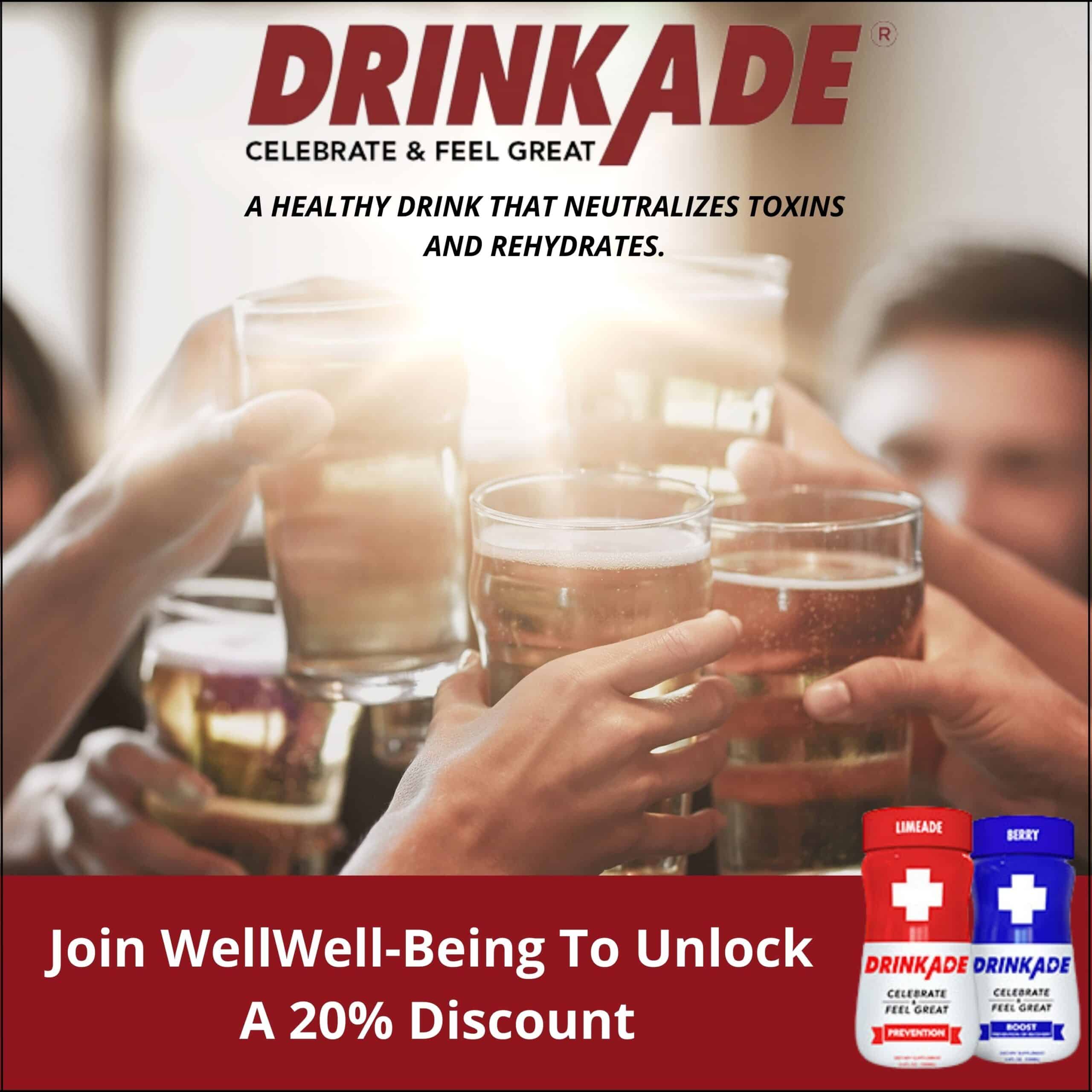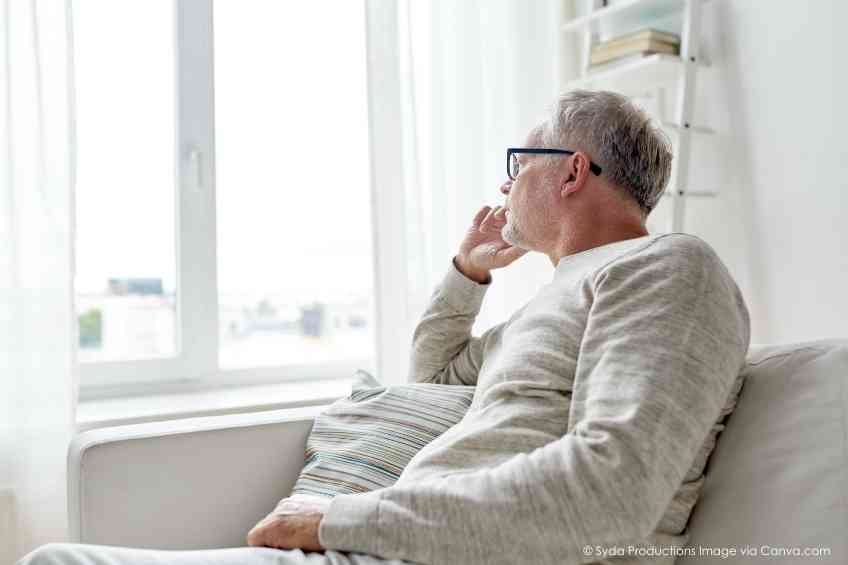“I eat because I’m unhappy and I’m unhappy because I eat. It’s a vicious cycle.” Who knew there would be so much scientific evidence to back up Mike Myer’s famous take on stress eating’s cyclical nature? Yet what’s more important is figuring out how to break this munch-out chain? Nutritionist Liana Werner-Gray thinks the answer lies in what we eat. If that’s true, then maybe it’s possible to eat our way to calm. WellWell recently chewed the fat, metaphorically speaking of course, with the author of Anxiety-Free with Food: Natural, Science-Backed Strategies to Relieve Stress and Support Your Mental Health on anxiety and depression causing foods and what our brains view as comfort food.
On a chemical level, how does sugar impact the body and brain to ultimately cause anxiety and depression?
Sugar is a neurotoxin that wreaks havoc on the nervous system and brain. When someone consumes it, their brain suddenly works extra hard to balance itself out chemically. That’s why after eating sugar, you’ll often crave either a fat or protein because the body wants something more grounding. Sugar’s also a proven anxiogenic, a substance that produces anxiety instantly. The degree to which depends on each person.
If someone is already naturally anxious or has a history of mental illness, will eating sugar expedite the process?
Absolutely, yes. Sugar should be the first thing to be removed for a person who has had a history of mental illness or anxiety because it’s a trigger that’ll make it so much worse.
While they may not realize the mental impact, I think most people know that sugar is not great for you. What are some other surprising foods that help produce anxiety and depression?
Trans fats are certainly one. These are foods that have been genetically modified or genetically engineered, things like vegetable oils, soy oils and, of course, fast food. Beyond anxiety and depression, in my book I note that Dr. Mark Hyman’s findings linked aggression, including violence, and as disturbing as this sounds, murder with eating fast food. Other foods are anything with preservatives or additives. The body can really only eat a certain amount of those before it starts to build up an intolerance to them triggering the nervous system and the brain chemistry to react in a negative way. Most microwaved foods and pasteurized foods have this impact as well.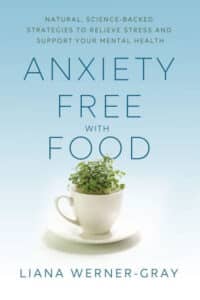
Anxiety and depression are obviously on the rise. In fact, the World Economic Forum reports 1 in 3 adults are depressed or anxious due to COVID-19. Beyond these current anxieties are people becoming more anxious because of a shift in diet or not eating as well as before the pandemic?
Yeah, absolutely. Some people are likely suffering with anxiety purely because of what they’re eating. Purely because of the chemical imbalance and a blood test would reveal that. People can go get a blood test done and if they are deficient in nutrients or if they have high cholesterol, they’re deficient in Omegas and Magnesium, Vitamin D, then they will most likely be suffering with anxiety because of purely chemical surges.
Anxiety is something that most of us have a lot of control in, more control that I think people realize. I know that a lot of people are suffering unnecessarily because of the food system. It’s responsible for so much of mental health issues. So, people need to rise above that and be wiser than the food industry and need to start making better choices for themselves for sure.
On a more positive note, what are some of the better options for brain health? What are foods to eat that will help reduce feelings of anxiety?
These are the anxiolytic foods, good healthy fats. These include things like olive oil, coconut oil, avocado, walnuts, or flax. Flax oil or flax seed, chia seed or hemp seeds, are also great and relatively easy to introduce on a daily basis.
The other foods that are on my top ten list based on my research for the book are dark leafy greens. They’d actually take first place because they have a lot of magnesium, which is a nutrient that we need and if we’re deficient, we’ll have anxiety.
Additionally, the chlorophyll component of dark leafy greens helps circulation, helps feed the brain and helps create a healthy gut microbiome. Of course, anti-inflammatory foods, foods with a lot of antioxidants help as well. So turmeric, cacao or ginger. For most people cacao or genuine real chocolate are very helpful in reducing stress and anxiety immediately.
What about comfort food? Say someone has a rough day and orders a pizza or gets fast food to make them feel better. Why is that not a sustainable practice?
It’s simple, that kind of comfort food isn’t as comforting an hour later. Your body has to deal with the consequences of that. To be clear, I’m all about comfort food but in an upgraded way. I have a chapter in my book called the Upgrade Mindset, which is all about this. So, when you’re craving comfort food. When you want something like mac and cheese, pizza, fries, ice cream, whatever, I option you can make those or order them in a healthier way. I know no one is going to simply order healthier food because then what’s the point. But it’s possible to make these items less harmful with minimal effort. Most dishes can be made with more wholesome ingredients, to avoid a ton of sugar, gluten or bad dairy. Imagine new comfort food that tastes good, is comforting in the moment, but also provides nutritional value that leaves you feeling good an hour later and the next day. It’s possible, if you’re cognizant of it.
For those not be ready to overhaul their diet, what’s one or two small changes they can make to help reduce these anxiety inducing foods?
That’s the most common question I get asked as a nutritionist, so I formulated a supplement that’s great for people who want to just drop something in their gut and know they’re taking care of themselves a little bit each day. It goes a long way to create the healthy gut microbiome that’s protective and helps the nervous and brain systems function.
What’re the supplements composed of?
They’re all anti-inflammatory with ten organic, no-GMO ingredients that are all adaptogenic. So, they help to build the body a tolerance and resilience for stress. They’re like little superheroes in the cells that help us not feel so much on edge.
I always use organic ingredients, some of the highlights are ashwagandha, spirulina, turmeric, flax seed, echinacea, corella, Schisandra, ginkgo, bilberry and celery.
I think we have everything we need. Is there anything you’d like to add or clarify?
Don’t feel crazy. If you’re worried, do a blood test. They’re simple and it’ll show if you’re deficient in anything so you can work to fix that then you’ll be relieving anxiety asap.
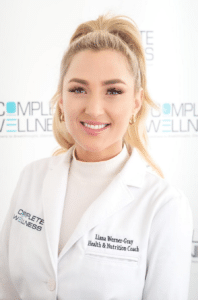 About Liana Werner-Gray
About Liana Werner-Gray
Liana Werner-Gray is a Certified Nutritionist and three-time Best Selling Author of The Earth Diet, Cancer-Free with Food, Anxiety-Free with Food and 10-Minute Recipes. She is a global speaker and has appeared on Dr. Oz, The Wendy Williams Show, News 12 NY, and ABC News. Werner-Grey has also been interviewed for Forbes, Yahoo Beauty, Bustle, US Weekly Woman’s Own, Pop Sugar, iHeart Radio, and WABC.
Learn More
www.theearthdiet.com
Instagram @theearthdiet, @lianawernergray
Twitter @TheEarthDieter

